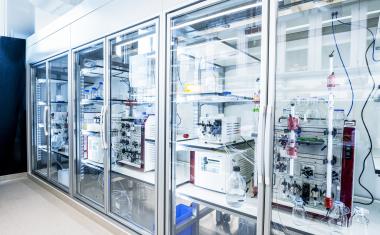Arkema and Solvay Pursue Battery R&D Projects
Two European chemical companies, France's Arkema and Belgium's Solvay, have announced R&D projects aimed at improving sustainability and safety of lithium batteries used in particular by the automotive industry
Arkema is teaming up with Canada's Institut de recherche d'Hydro-Quebec (IREQ) to develop a new "highly safe" electrolyte from fluoride and non-fluoride salts produced by the French company.
As part of the deal, Arkema has licensed its technology for the fluoride salts to IREQ, which will hold intellectual property rights.
The goal of the research, the partners said, will be to find a new electrolyte suitable for use in lithium-ion and lithium-polymer battery technologies that can find application in the automotive industry.
In a European Commission-supported program, Solvay Specialty Polymers has launched the LIFE+ GLEE project, which it describes as a highly focused sustainability program that aims to use water instead of organic solvents in manufacturing rechargeable lithium ion (Li-ion) batteries.
As cathode materials are usually water-sensitive, Solvay notes, most processes use organic solvents. Many of these, however, have been classified by the European Chemicals Agency - the body that administers REACH - as "substances of very high concern," with progressive substitution encouraged.
Emplyoing an innovative cathode protection technology that protects the active material from water contact during the manufacturing of cathodes, Solvay said it intends to develop a process that goes a step farther than most alternatives.
The "unique technologies" that the company says will carry no toxic risks and also will reduce the manufacturing costs associated with solvent recovery and re-purification processes, will be tested in a pilot plant Solvay is building at Bollate, Italy. The facility is expected to start up in time for the Milano Expo 2015 being held from May 1 to Oct. 31 next year.
Solvay said sufficient quantities of the clean chemical material will be made available for evaluation by battery makers and research organizations. Additionally, batteries made with the material are to be made available for testing by independent groups and end-user consumers such as manufacturers of electric cars.


















